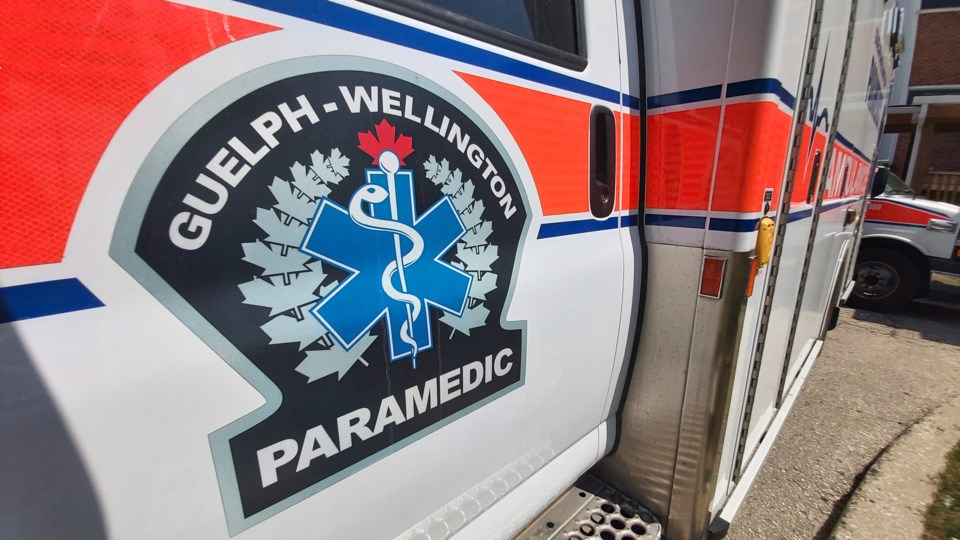GUELPH/WELLINGTON – Guelph Wellington Paramedic Service (GWPS) saw an increase in emergency calls in 2022, further impacting paramedic response times year says a year-end report.
A 2022 GWPS data review report on the county’s social services committee agenda said the service surpassed 30,000 calls last year, an eight per cent increase over 2021.
GWPS chief Stephen Dewar, author of the report, said this appears to be in line with a consultant's report from 2016 predicting a 43 per cent increase in call volumes by 2026.
“Our results from last year are a 40.5 per cent increase since that assessment,” Dewar wrote. “Our service is currently responding to more than 82 calls for assistance each day.”
Dewar also noted GWPS has seen a trend of a disproportionate increase in calls for children.
The report stated the service has seen a 43 per cent increase in calls for patients under the age of 18 over 2021 numbers and this is a trend that other paramedic services across Canada are also noting.
Dewar wrote the increase in call volume is straining GWPS’ ability to maintain response times to emergency calls.
Through 2022, the report stated the average response time was eight minutes and eight seconds for potentially life threatening calls, and responded within 14 minutes 90 per cent of the time.
This is higher than the average response time of seven minutes and 39 seconds and responding within 12 minutes and 36 seconds 90 per cent of the time in 2021.
This is on top of ongoing hospital offload delays Dewar noted in the report are a significant factor in increasing response times. Hospital offload delays are when paramedics have to stay with a patient in a hospital emergency department for more than 30 minutes.
“Our paramedics were required to stay in the hospital to care for our patients for almost 11,000 hours in 2022, more than double the number of hours in 2021,” Dewar wrote.
But work is being done to relieve these pressures where possible such as the Fit2Sit program, where patients deemed suitable can be left in the waiting room, grouping patients in offload delay to be cared for by one paramedic and using alternate destinations where approved by the province.
The report said impacts to the increase of call volumes have been somewhat offset by an increase of staffing over the years, including four paramedics and two supervisors recently approved by Guelph city council.
The province also recently announced funding for the City of Guelph and Guelph General Hospital to staff a dedicated offload nurse for 12 hours per day.
The community paramedicine program, where GWPS can deliver medical services to residents at home, enrolls and monitors over 13,000 residents and provides home visits for about 18 people per day.
Dewar wrote in the report approximately 10 per cent of those surveyed from the program indicated they felt they would have needed to access 911 or the hospital emergency department if not for the program.
Full report can be found here.
